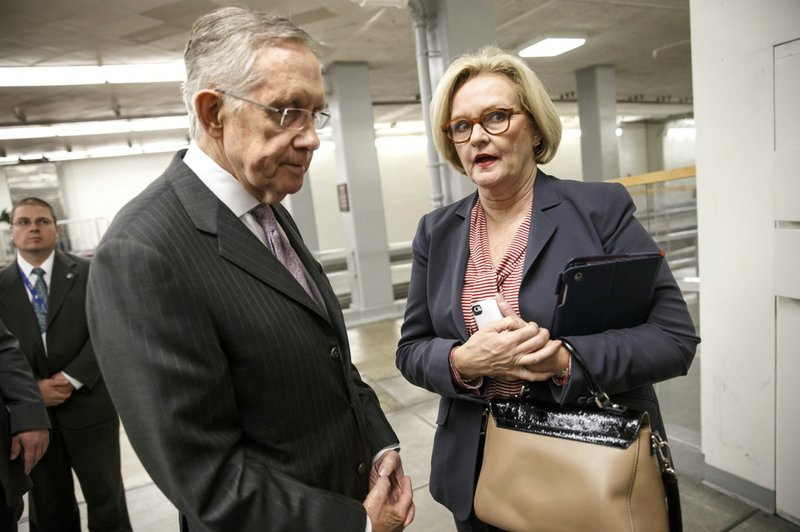WASHINGTON — A bipartisan budget bill that would ease some but not all of painful budget cuts that would otherwise slam the Pentagon and domestic agencies passed a pivotal test in the Senate on Tuesday.
The Senate advanced the measure over a filibuster threshold on a 67-33 vote that ensures the measure will pass the Democratic-led chamber no later than Wednesday and head to the White House to be signed into law.
Top Senate Republicans opposed the bill but didn't try to engineer its defeat. It won sweeping GOP support in the House in a vote last week.
The measure would ease some of the harshest cuts to agency budgets required under automatic spending curbs commonly known as sequestration. It would replace $45 billion in scheduled cuts for the 2014 budget year already under way, lifting agency budgets to a little more than $1 trillion, and it also would essentially freeze spending at those levels for 2015. It substitutes other spending cuts and new fees to replace the automatic cuts and devotes a modest $23 billion to reducing the deficit over the coming decade.
Read tomorrow's Arkansas Democrat-Gazette for full details.
